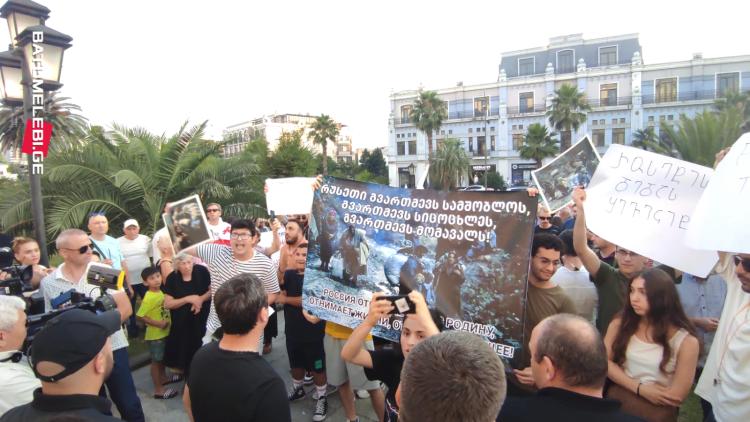
The port city of Batumi in Georgia became the center of attention when a cruise liner, Astoria Grande, docked in its harbour on July 27. The ship brought Russian tourists to the Georgian coast, sparking demonstrations and heated debates on issues of occupied territories and media ethics. The protests and subsequent arrests have raised concerns about the practice of administrative detention and the protection of individuals' rights during demonstrations. Additionally, the media's role in posing politically sensitive questions to tourists has come under scrutiny.
How the events unfolded
As the Astoria Grande arrived in Batumi on July 27, citizens organised a protest against the cruise liner and its Russian tourists. The arrival of a ship from Sochi, Russia, into Georgian waters, is a sensitive issue given the historical conflicts between the two countries over the occupied territories of Abkhazia and South Ossetia. People protested against the presence of Russian tourists in Georgia and their perceived lack of acknowledgment of Georgia's occupied territories. The ship left the harbour the following day, but re-entered on July 31, which led to another wave of protests.
The demonstrators expressed their opposition through various means, including throwing eggs and bottles. In response, the Georgian police intervened to ensure the departure of the cruise liner and the safety of its passengers. However, the use of administrative detention to arrest 23 protesters, including two citizens of Ukraine, has raised concerns about the handling of protests and the protection of individuals' rights during demonstrations. Some of the protestors were released by the court on August 1, although most of the hearings were postponed till August 7.
Administrative detention, which allows authorities to detain individuals without formal charges, is a practice that has been criticised for its potential to violate constitutional rights and freedoms.
Highlighted cases of detentions
A Georgian-Ukrainian citizen was among those detained at the protest rally. She describes her motivation for attending the rally as a strong sense of identity with both Georgia and Ukraine and opposition to Russian actions in both countries. She recounts being arrested and claims the police confiscated her Ukrainian flag, which had personal significance for her.
Another arrested protester accused the head of the Batumi criminal police of physical violence during his arrest. He shared photographs on social media showing injuries he allegedly sustained during his detention. His allegations further escalated the controversy surrounding the protest and the treatment of detainees.
Investigations of potential police misconduct
In response to the allegations of police violence, the Special Investigation Service has launched an investigation to determine whether the police overstepped their authority during the July 31 protest in Batumi. This move aims to ensure transparency and accountability in the handling of protests and the treatment of detainees. The investigation should provide insights into the events that transpired and shed light on any potential misconduct by law enforcement officials.
As Georgia navigates through these complex issues, striking a balance between freedom of expression, and the protection of individual rights will be crucial for fostering a more informed and inclusive society. The protesters' rights to assembly and freedom of expression, guaranteed by the Georgian Constitution, appear to have been restricted during the events in Batumi.
Source page of the photo: https://www.ukrainianworldcongress.org/georgians-force-russian-sruise-s…
